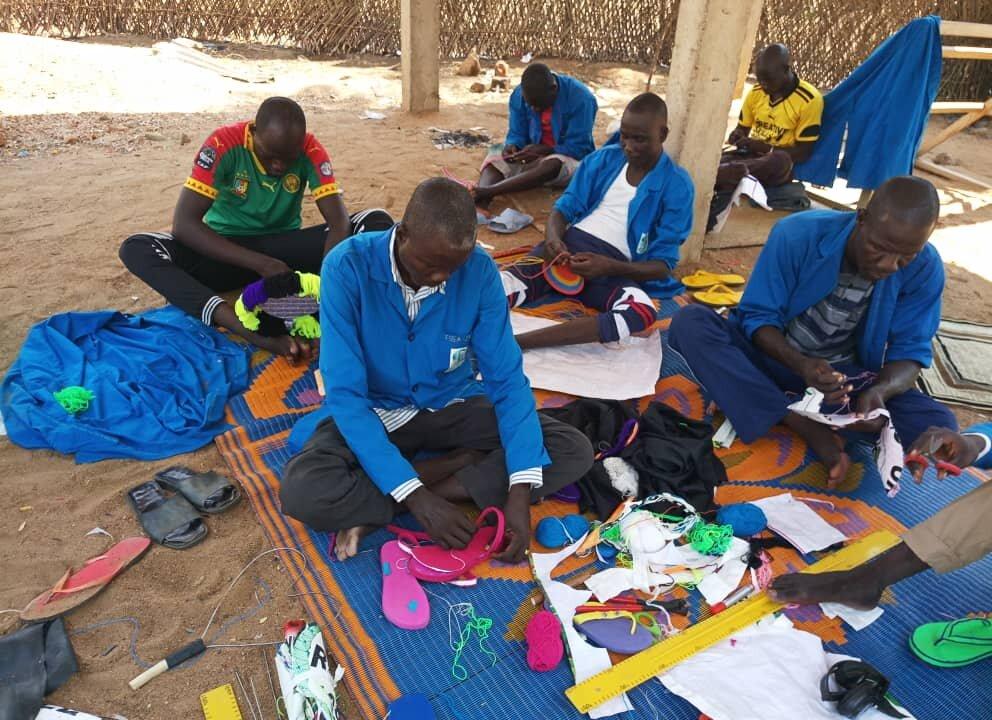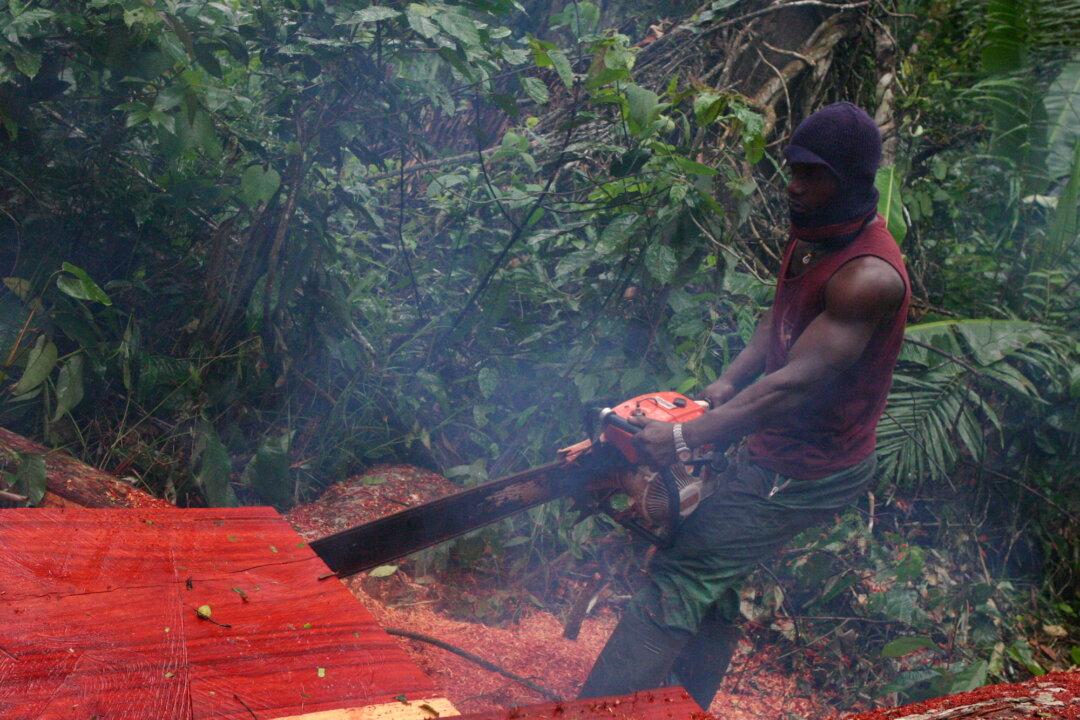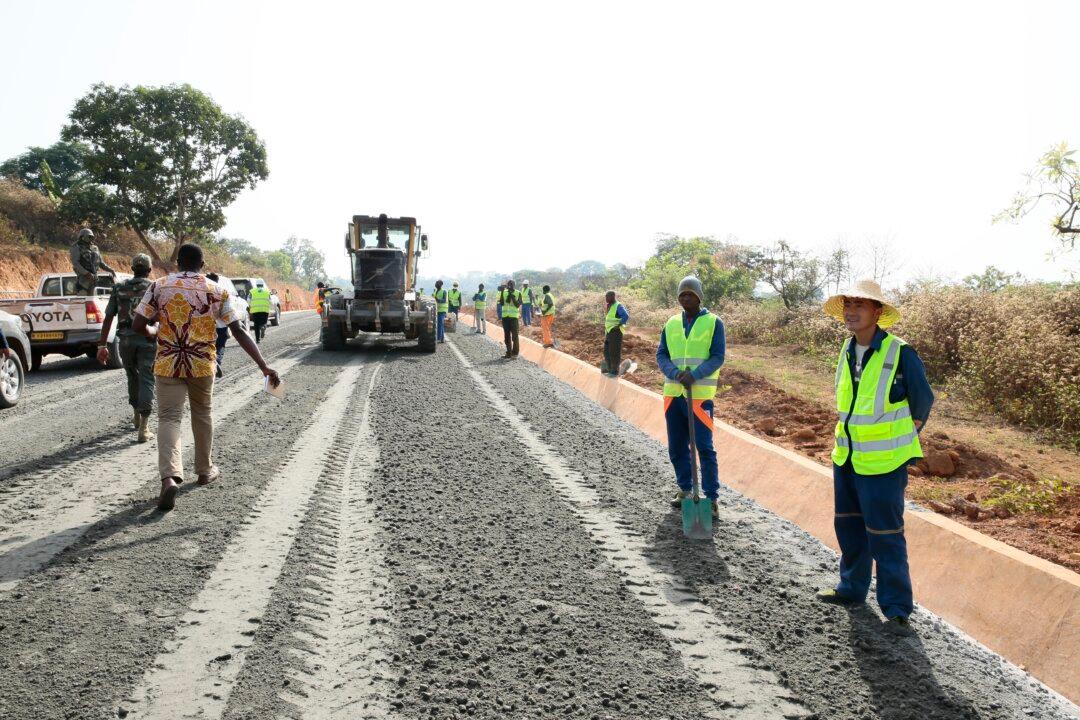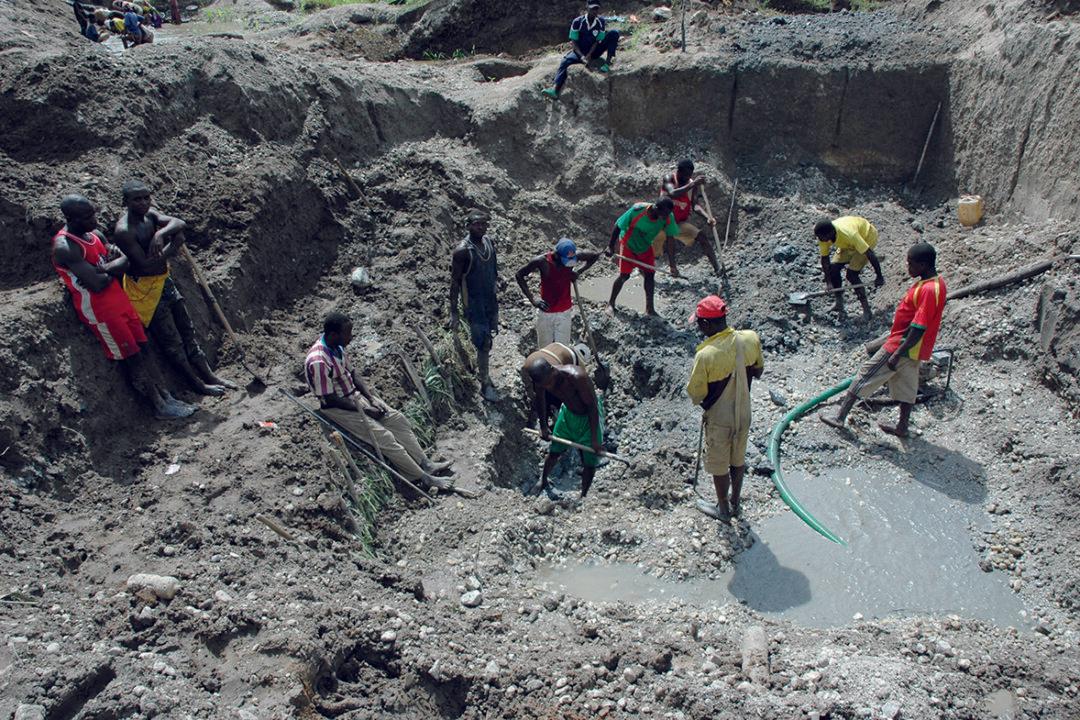YAOUNDE, Cameroon—It is a bright morning at the Mfou Principal Prison, about 20 miles from the outskirts of Yaounde, Cameroon’s capital. The blistering sun is shining down on the jail courtyard.
Seven inmates, all clad in blue overalls and holding artisanal tools, are busy working in a small workshop while taking lessons from Ngobillong Tii Ariel, an inmate herself. They are engaged in the transformation of worn-out tires picked up off the streets into brand new, durable and marketable sandals.




